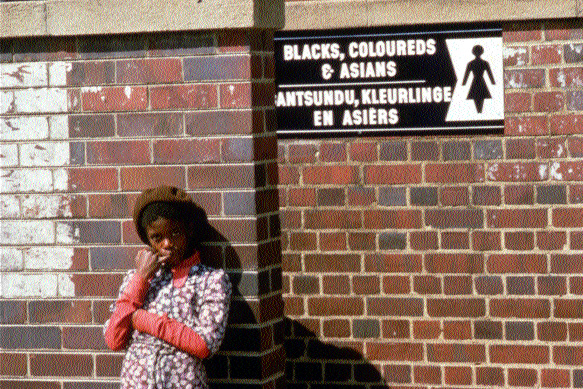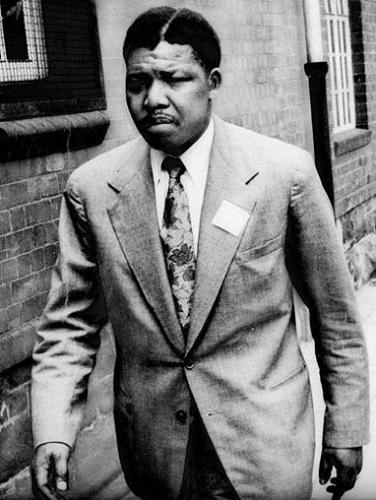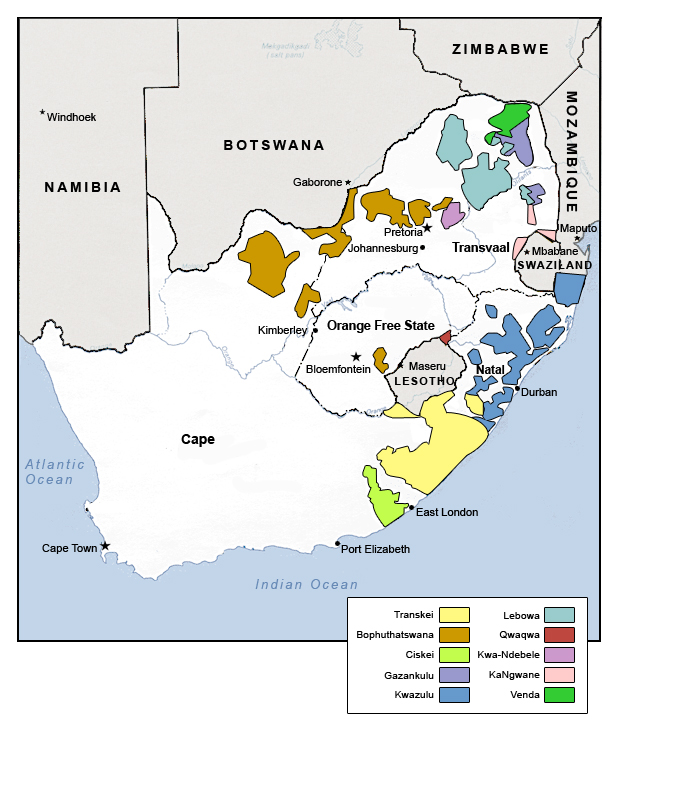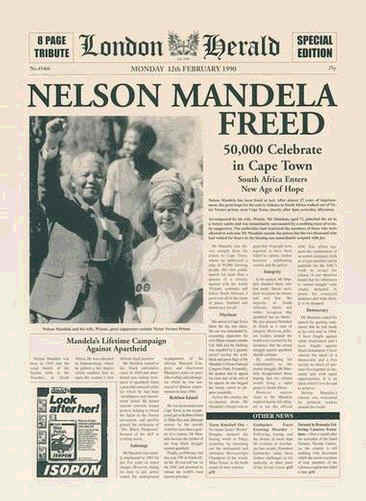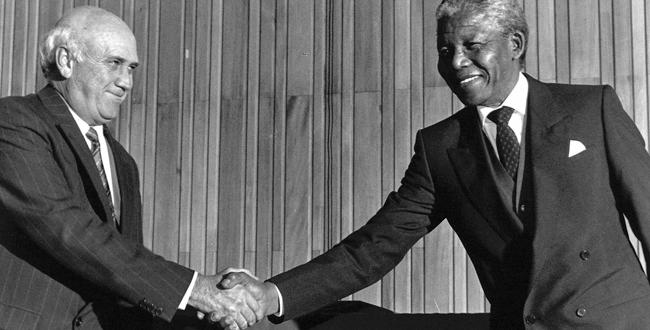
|
||||||||||||
|
|
|
Apartheid The term apartheid (from the Afrikaans word for "apartness") was coined in the 1930s and used as a political slogan of the National Party in the early 1940s, but the policy itself extends back to the beginning of white settlement in South Africa in 1652. After the primarily Afrikaner Nationalists came to power in 1948, the social custom of apartheid was systematized under law.
With the enactment of apartheid laws in 1948, racial discrimination was institutionalized. Race laws touched every aspect of social life, including a prohibition of marriage between non-whites and whites, and the sanctioning of ``white-only'' jobs. In 1950, the Population Registration Act required that all South Africans be racially classified into one of three categories: white, black (African), or colored (of mixed decent). The coloured category included major subgroups of Indians and Asians. Classification into these categories was based on appearance, social acceptance, and descent. For example, a white person was defined as ``in appearance obviously a white person or generally accepted as a white person.'' A person could not be considered white if one of his or her parents were non-white. The determination that a person was ``obviously white'' would take into account ``his habits, education, and speech and deportment and demeanor.'' A black person would be of or accepted as a member of an African tribe or race, and a colored person is one that is not black or white. The Department of Home Affairs (a government bureau) was responsible for the classification of the citizenry. Non-compliance with the race laws were dealt with harshly. All blacks were required to carry ``pass books'' containing fingerprints, photo and information on access to non-black areas.
In 1951, the Bantu Authorities Act established a basis for ethnic government in African reserves, known as ``homelands.'' These homelands were independent states to which each African was assigned by the government according to the record of origin (which was frequently inaccurate). All political rights, including voting, held by an African were restricted to the designated homeland. The idea was that they would be citizens of the homeland, losing their citizenship in South Africa and any right of involvement with the South African Parliament which held complete hegemony over the homelands. The African National Congress (ANC), founded in 1912 as the South African Native National Congress, it had as its main goal the maintenance of voting rights for Coloureds (persons of mixed race) and black Africans in Cape Province. It was renamed the African National Congress in 1923. From the 1940s it spearheaded the fight to eliminate apartheid, the official South African policy of racial separation and discrimination it was banned in 1960.
Nelson Mandela, a leader of the ANC was arrested in 1964 and sentenced to life imprisonment. Behind bars on Robben Island he became the symbol of the resistance to apartheid. Free Mandela was a familiar cry worldwide.
From 1976 to 1981, four of these homelands were created, denationalizing nine million South Africans. The homeland administrations refused the nominal independence, maintaining pressure for political rights within the country as a whole. Nevertheless, Africans living in the homelands needed passports to enter South Africa: aliens in their own country. In 1990 South African President Frederik W. de Klerk lifted the ban outlawing the African National Congress (ANC) and frees Nelson Mandela from prison.
Africa's first democratic elections in which full enfranchisement was granted were held on 27 April 1994.
Frederik W. de Klerk and Nelson Mandela
The ANC won the majority in the election, and Nelson Mandela was inaugurated as the country's first black State President, with the National party's FW de Klerk as his deputy president in the Government of National Unity.
|
